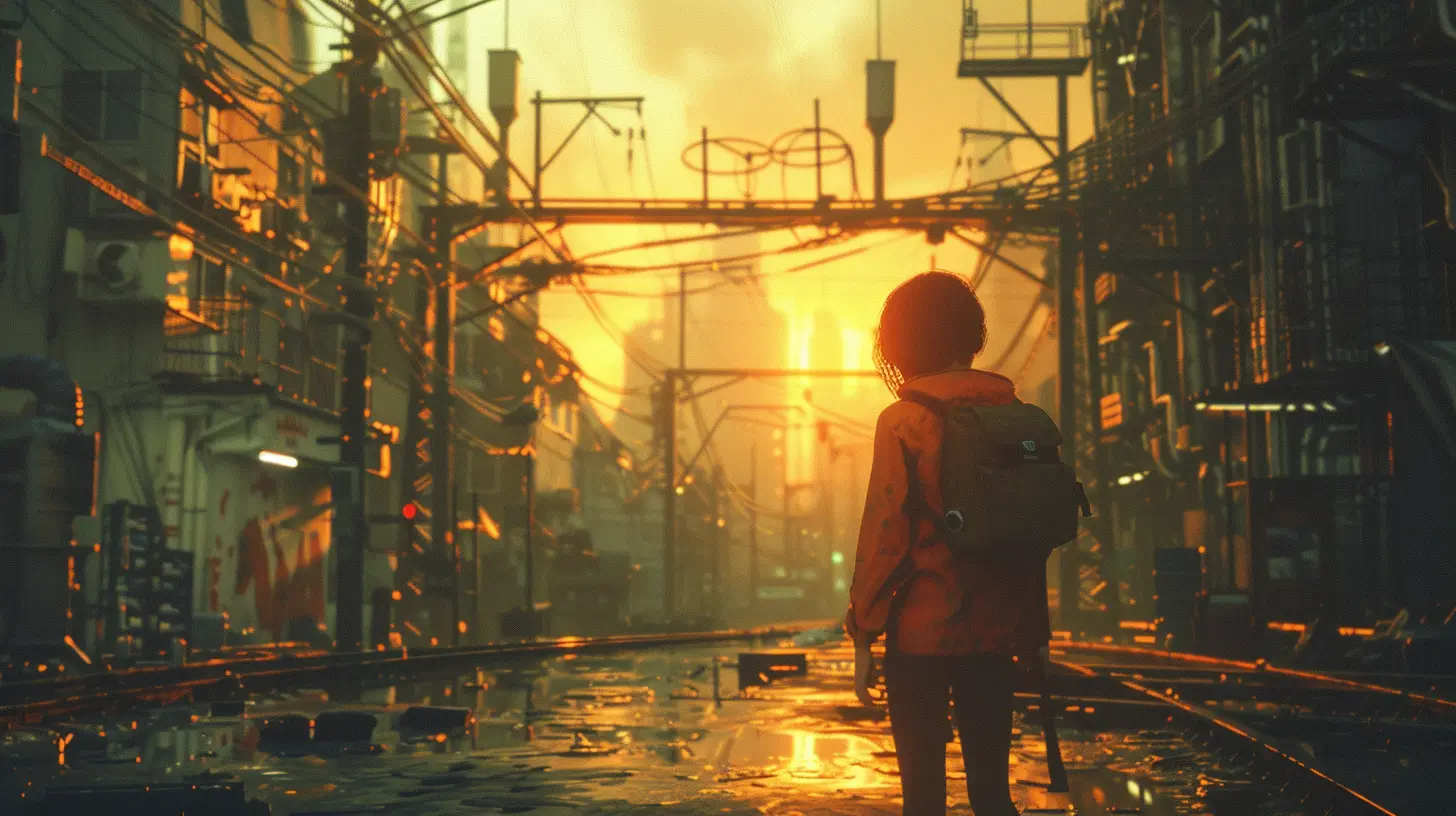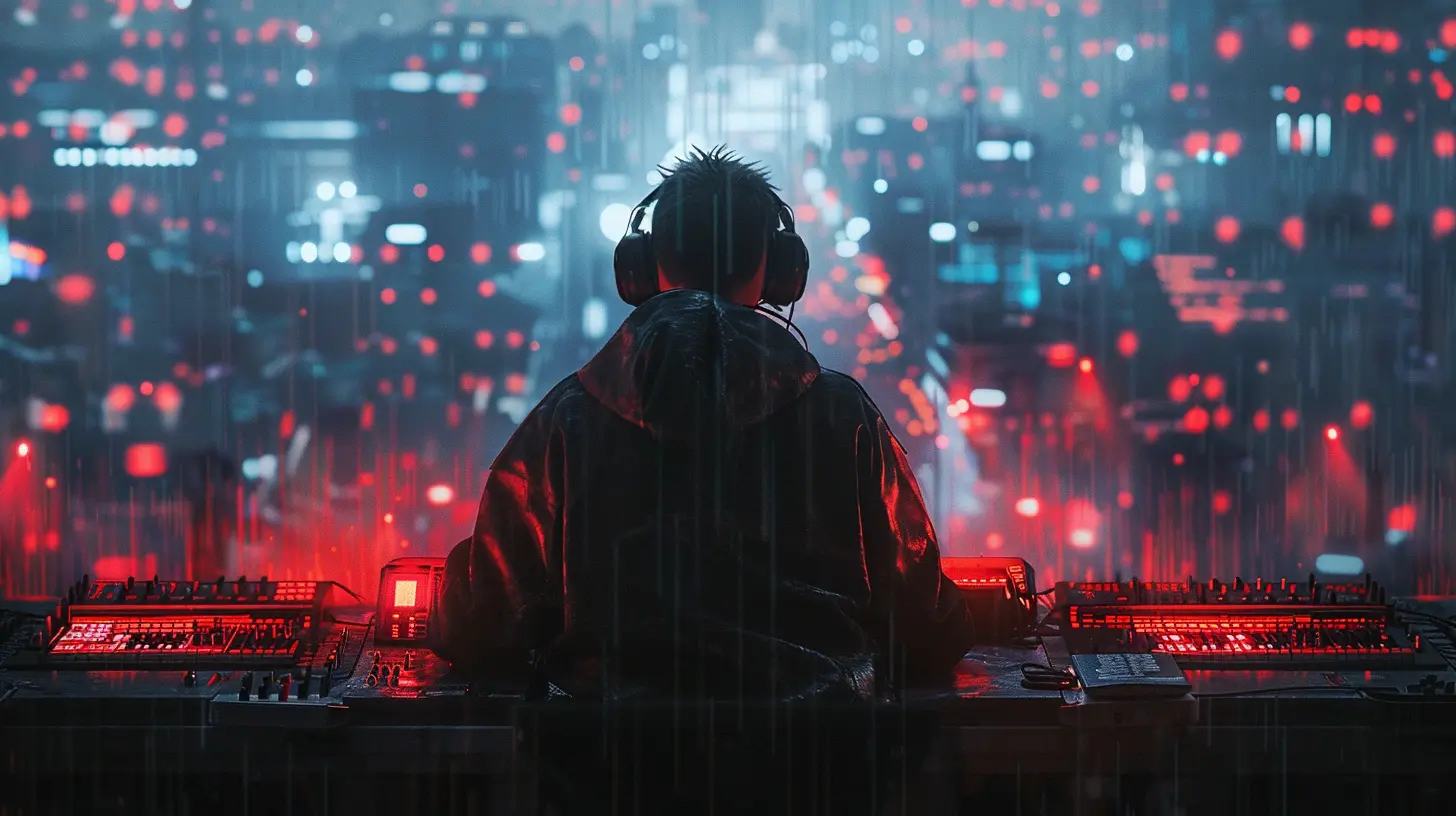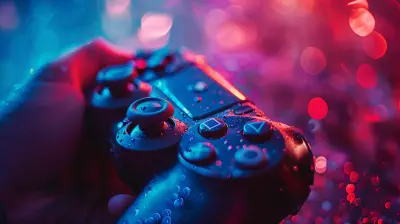Music as a Mechanic: When Soundtracks Affect Gameplay Decisions
14 August 2025
Let’s be real for a second—video games aren’t just about sharp graphics or fluid gameplay. Sometimes, it’s the music that sneaks up on you and completely transforms the experience. It’s that pulse-pounding boss theme, eerie ambient noise, or emotional orchestral swell that gets under your skin and influences the way you play. Ever stopped to think about how much soundtracks shape your choices in a game? Yeah, music isn’t just the background DJ—it can be a full-blown mechanic. So, grab your favorite pair of headphones, and let’s dive into how soundtracks do way more than just set the mood.
The Psychology of Sound: Why Music Hits Different in Games
Think about this for a moment: have you ever felt your palms sweat as the tempo of a game’s music started to speed up? That’s no accident. Music in games is designed to mess with your brain in the best way possible. There’s an entire science behind how sound influences perception, emotion, and, ultimately, decision-making.When the tempo rises, like in a ticking-timer scene, your sense of urgency spikes too. Or when the music grows quieter, instinctively, you tread carefully, almost as if the game whispered, "Hey, you better watch your step." This is because music taps directly into your subconscious, much like a well-placed whisper in a horror movie.
Music affects our dopamine levels—the brain’s "feel-good" chemical. Think about that victorious anthem that plays when you beat a tough level. The satisfaction isn’t just from clearing the stage; it’s that soundtrack amping up your sense of accomplishment. Games manipulate music to create emotional highs and lows, and you’re along for the ride, whether you realize it or not.
The Role of Soundtracks in Decision-Making
Ever notice how music can actually dictate what you do in a game? It’s like a ghostly co-op partner nudging you in the right direction. Let’s get into a few specific ways soundtracks influence gameplay decisions.1. Setting the Pace of Play
Picture yourself playing a fast-paced action game. If the music cranks up speed with drum beats and sharp instrumentals, you’re probably going to push forward more aggressively. On the flip side, a slower, more subdued melody makes you cautious. Take DOOM Eternal, for example. The heavy metal soundtrack practically begs you to rush into the fray, guns blazing. Contrast that with a stealth game like Hitman, where the silence in the soundtrack forces you to pause and think twice before taking action. It’s like the music is a metronome syncing with your brain.2. Conveying Threat Levels
In games, music often acts like your sixth sense. Ever been wandering around in an RPG and suddenly, the music shifts to something eerily ominous? Without even needing to look around, you know danger’s nearby. Horror games use this trick constantly (looking at you, Resident Evil). The faint sound of violins or a creeping piano riff puts you on edge, making you hesitate or outright run the other way. It’s genius, really. Even if you don’t see a monster, the soundtrack makes sure you feel it.3. Enhancing Emotional Choices
Music also sneaks into moral decision-making in storytelling-heavy games. In something like The Last of Us Part II, a melancholic score can make you feel guilty about a choice you’re about to make—even if it’s the "right" one. The music amplifies the stakes and adds emotional weight to your decisions. It’s like having your conscience in surround sound.
Iconic Examples of Music as a Mechanic in Games
Let’s rewind and look at some legendary games where music isn’t just a feature—it’s a functional mechanic that messes with how you play.1. Undertale's Reactive Soundtrack
If you’ve played Undertale, you already know what’s up. This indie darling is famous for how its music adapts to your gameplay. In battles, songs like “Megalovania” change dynamically based on the choices you’ve made—whether you’re playing the game peacefully or as a full-blown chaotic monster. The soundtrack emotionally rewards or punishes your decisions, making you second-guess your actions every step of the way.2. The Creepy Silence of Silent Hill
In the Silent Hill series, silence is as much a weapon as sound. Sure, there’s unsettling background music, but those long stretches of near-silence with just a faint industrial hum? They’re even worse. The lack of music makes the moments where it does swell hit you like a truck. You walk slower, breathe heavier, and pray nothing jumps out at you. Silence becomes the mechanic, and it’s terrifying.3. Legend of Zelda: Ocarina of Time’s Musical Puzzles
Here’s a more literal example: in Ocarina of Time, music is a tool for solving puzzles, summoning allies, or even manipulating time. Memorizing melodies for your ocarina isn’t just a gimmick—it’s integral to progression. Forget the song? Good luck moving forward. It’s a perfect example of how music and gameplay can be intertwined seamlessly.4. The Adrenaline Beats of Tetris Effect
Tetris Effect takes a simple concept—stacking falling blocks—and elevates it with a reactive soundtrack. As you clear lines and progress, the music evolves with you. Faster gameplay means quicker beats, creating an almost hypnotic loop where your decisions feel in sync with the rhythm. You’re not just playing Tetris—you’re performing it.
Why This Works: The Immersive Power of Audio
So, what makes all this work? Immersion. Games are about creating spaces where players forget the outside world, and music is one of the most effective tools to pull you in. A well-crafted soundtrack acts like emotional Velcro, sticking you to the game world.Think of it like this: visuals might create the setting, but music creates the vibe. It’s the invisible thread tying the player to their avatar’s choices. When done right, music doesn’t just complement the gameplay—it becomes part of it.
The Future of Music as a Mechanic
The way developers are experimenting with adaptive soundtracks is mind-blowing. Technologies like real-time audio manipulation mean no two players will hear the same soundtrack in the same way. Imagine a future where a game’s music is composed on the fly, adjusting perfectly to your unique choices and playstyle. Wild, right?Virtual reality (VR) is also making music mechanics more immersive. In VR games, sound plays an even bigger role in tricking your brain into believing the illusion. Whether it’s locating an enemy through 3D audio cues or syncing your actions to a rhythm game in VR, the potential for soundtracks to impact gameplay decisions will only grow.
TL;DR: Music’s the Real MVP
At the end of the day, music in games is more than just ear candy. It’s a tool, a narrative device, and sometimes even a lifeline guiding your gameplay decisions. Whether it’s nudging you toward danger, adding weight to moral choices, or syncing with your actions like a dance partner, soundtracks have a sneaky yet undeniable influence on how you play. So, next time you fire up a game, pay attention to the music—you might just realize it’s been pulling the strings all along.all images in this post were generated using AI tools
Category:
Original SoundtracksAuthor:

Audrey McGhee
Discussion
rate this article
2 comments
Merida McKittrick
Great article! It’s fascinating how music can influence player choices, enhancing immersion and emotional engagement. Can't wait to see more games explore this concept!
November 10, 2025 at 5:25 AM

Audrey McGhee
Thank you! I'm glad you enjoyed it. Music truly has a powerful impact on gaming experiences, and I share your excitement for future developments in this area!
Vera Lewis
This article brilliantly highlights how soundtracks transcend mere ambiance, influencing player emotions and decisions, ultimately shaping unique gameplay experiences that are often overlooked.
August 24, 2025 at 3:31 AM

Audrey McGhee
Thank you for your insightful comment! I'm glad you enjoyed the article and recognize the profound impact of soundtracks on gameplay.


